5 Game-Changing Custom GPT Examples for Business Innovation
This blog post unveils five transformative Custom GPT applications engineered to revolutionize business operations and foster innovation.
Moving beyond generic AI, we showcase tailored examples that demonstrate how bespoke GPT solutions can unlock new efficiencies, enhance customer experiences, streamline workflows, and create significant competitive advantages across various industries.
Discover the practical power of AI in driving real-world business success.
🔑 Key Takeaways: What This Guide Reveals About Custom GPTs
-
Why Custom GPTs matter now They go beyond regular ChatGPT by training on your data, following your rules, and keeping your brand’s voice consistent.
-
How businesses use them in 2025 Real examples across marketing, sales, education, and customer support show measurable impact today.
-
Mistakes to avoid The common setup pitfalls most people make and the smarter approaches that keep quality high from day one.
-
Step-by-step guidance A practical checklist, tools cheat sheet, and industry use cases you can copy immediately.
-
The bigger picture Early adopters of Custom GPTs are gaining a competitive edge while others are still “just prompting.”
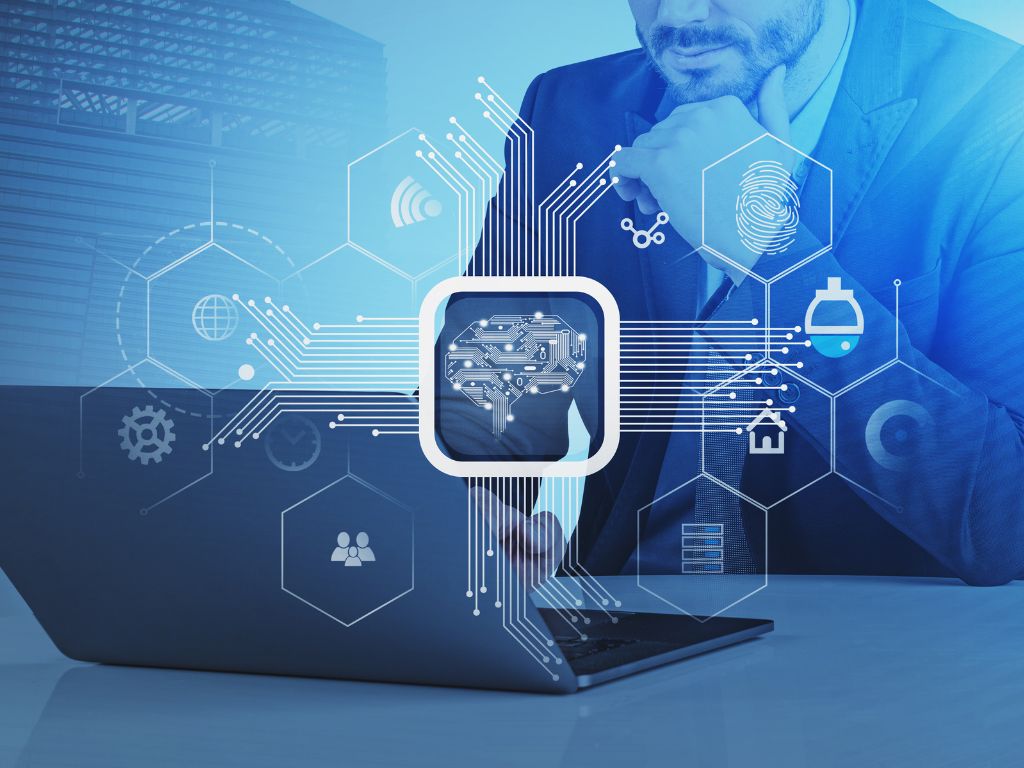
What Are Custom GPTs and Why They’re a Business Game-Changer
Imagine having a highly specialized AI assistant, meticulously trained on your company’s data, processes, and unique needs, ready to tackle specific tasks with unparalleled precision. That’s precisely what Custom GPTs bring to the table.
At their core, Custom GPTs are tailored versions of OpenAI’s powerful GPT models, like ChatGPT, designed to operate within specific parameters you define. Think of them not as a general-purpose Swiss Army knife, but as a finely crafted, specialized tool built for a particular job. You provide them with:
- Specific Instructions: Guiding their behavior, tone, and decision-making.
- Proprietary Knowledge: Uploading documents, data sets, or internal guides that become their expert knowledge base.
- Custom Actions (Capabilities): Connecting them to external tools, databases, or APIs, allowing them to perform tasks like sending emails, updating CRM records, or fetching real-time data.
This level of customization transforms a versatile AI into an indispensable, hyper-efficient team member. Why are they a game-changer for businesses?
- Unprecedented Specialization: Unlike general-purpose AI that might struggle with niche queries, Custom GPTs excel because they’re focused. They understand your jargon, your brand voice, and your specific operational context, delivering accurate and relevant outputs every time.
- Massive Efficiency Gains: Automate repetitive, time-consuming tasks across departments – from drafting marketing copy and generating sales leads to analyzing internal reports and providing instant customer support. This frees up human capital for more strategic initiatives.
- Scalable Expertise: Turn your most valuable internal knowledge into an accessible, always-on resource. Onboard new employees faster, ensure consistent information dissemination, and empower your teams with instant answers, reducing reliance on individual experts.
- Lower Barrier to AI Adoption: You don’t need a team of AI engineers to deploy sophisticated AI solutions. Custom GPTs are built with an intuitive interface, making advanced AI accessible to a much broader range of businesses, regardless of their technical resources.
- Driving Innovation: By automating mundane tasks, Custom GPTs allow your teams to focus on strategic thinking, creativity, and high-value problem-solving, fostering a culture of innovation and opening new possibilities for how work gets done.
In essence, Custom GPTs empower businesses to leverage the full potential of AI by making it deeply relevant and instantly actionable for their specific challenges and opportunities.
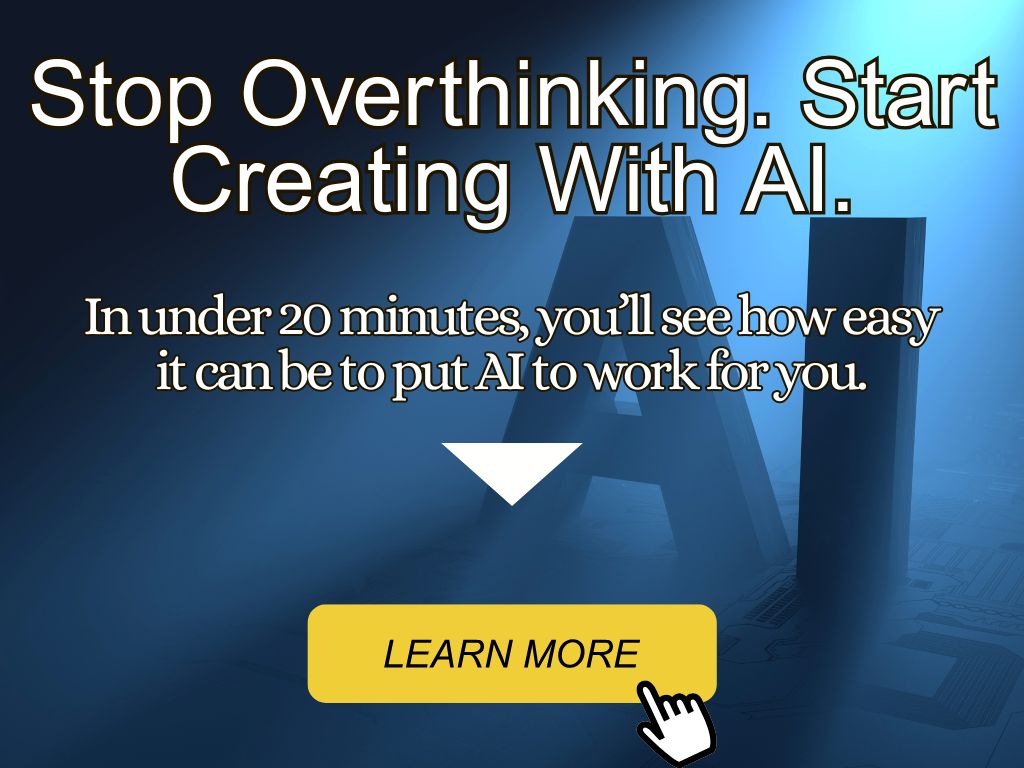
🏆 Top 5 Custom GPT Examples at a Glance
| Use Case | How It Helps | Who Benefits Most |
|---|---|---|
| Customer Support | Automates FAQs, reduces ticket volume, boosts satisfaction. | SaaS, e-commerce, service businesses |
| Content Creation | Drafts blogs, emails, and posts at scale while keeping brand voice. | Marketers, creators, agencies |
| Sales & Lead Generation | Qualifies leads, personalizes outreach, and shortens sales cycles. | B2B sales teams, consultants |
| Research & Data Analysis | Summarizes reports, extracts insights, accelerates decision-making. | Analysts, startups, enterprise teams |
| Internal Training | Delivers onboarding, guides, and knowledge support to employees. | HR teams, training managers |
1. Best Custom GPT Example for Customer Support (2025)
Imagine your customer support team freed from the endless cycle of answering the same questions repeatedly. That’s precisely what a Custom GPT built for FAQ and troubleshooting can achieve.
This isn’t just a basic chatbot; it’s an intelligent assistant meticulously trained on your entire knowledge base: your product manuals, detailed FAQs, historical support tickets, and even internal troubleshooting guides. When a customer has a query, instead of waiting in a queue or sifting through dense documentation, they can interact directly with your AI assistant.
How it works:
- Instant Answers: The GPT rapidly processes customer inquiries in natural language, pulling precise answers from its vast, proprietary knowledge base.
- Guided Troubleshooting: For more complex issues, it can guide users step-by-step through diagnostic processes, often resolving problems without human intervention.
- Contextual Understanding: It understands product-specific jargon and common user errors, providing relevant and helpful responses.
- Seamless Escalation: If the issue is truly unique or requires human empathy, the GPT can intelligently route the customer to the appropriate human agent, providing a summary of the conversation so far.
The Game-Changing Impact:
- Reduced Support Load: Significantly decreases the volume of routine inquiries, allowing human agents to focus on high-value, complex cases.
- Enhanced Customer Satisfaction: Customers receive immediate, accurate answers 24/7, leading to quicker resolutions and a more positive experience.
- Consistent Information: Ensures every customer receives the same, correct information, eliminating discrepancies that can arise from human error.
- Faster Onboarding: New support agents can leverage the GPT as a powerful training tool and an instant reference guide.
2. Custom GPT Example: AI-Powered Content Creation
Imagine your marketing team, freed from the constant grind of brainstorming, drafting, and optimizing content, yet producing more high-quality, on-brand material than ever before. This becomes a reality with a Custom GPT designed as a Niche Content Generator.
Unlike general-purpose AI writers that might produce generic or off-brand content, this Custom GPT is meticulously trained on your specific brand guidelines, target audience profiles, product/service details, industry jargon, and even your competitors’ strategies. It learns your unique voice, your preferred tone, and the nuances of what resonates with your customers.
How it works:
- Hyper-Relevant Ideation: Based on your inputs (e.g., a new product launch, a specific marketing campaign, or a trending industry topic), the GPT can instantly generate a plethora of content ideas tailored to your niche and audience.
- On-Brand Content Drafting: From blog posts and social media updates to email newsletters, ad copy, and video scripts, it can draft compelling content that perfectly aligns with your brand voice and messaging.
- SEO Optimization: Trained on your keyword research and SEO best practices, it can seamlessly integrate relevant keywords, optimize meta descriptions, and suggest content structures that improve search engine visibility.
- Multi-Platform Adaptation: It understands the distinct requirements of different platforms (e.g., concise for Twitter, engaging for Instagram captions, informative for LinkedIn posts), adapting content accordingly.
- Competitive Analysis Integration: By ingesting competitive data, it can help craft content that differentiates your brand and exploits market gaps.
The Game-Changing Impact:
- Explosive Content Velocity: Dramatically accelerate your content production cycle, allowing you to publish more frequently and respond to market trends with unprecedented speed.
- Unwavering Brand Consistency: Ensure every piece of content, regardless of who initiates it, adheres strictly to your brand’s voice, tone, and messaging guidelines.
- Enhanced Marketing ROI: Produce highly targeted, SEO-optimized content that drives better engagement, higher conversion rates, and improved organic search performance.
- Empowered Marketing Teams: Free your human marketers from repetitive drafting tasks, allowing them to focus on high-level strategy, creative ideation, performance analysis, and building deeper customer relationships.
- Scalable Expertise: Instantly onboard new marketing hires by providing them with an AI assistant that embodies your brand’s content strategy and voice from day one.
3. Practical Use Case: Custom GPTs in Sales and Lead Generation
Imagine a world where every new employee hits the ground running, fully understands their role, and feels seamlessly integrated into your company culture from day one. Or where existing employees can instantly access accurate policy information or refresh their skills without disrupting busy colleagues. Traditional onboarding and training can be a bottleneck, often relying on dense manuals, lengthy presentations, or the availability of overworked mentors. Enter the Custom GPT as your ultimate Personalized Learning Guide.
This isn’t just an FAQ bot for new hires; it’s an intelligent, adaptive mentor trained on your entire organizational knowledge base. This includes:
- Comprehensive Knowledge Base: Your company’s HR policies, product specifications, departmental procedures, cultural handbooks, safety protocols, and even historical project data become its core curriculum.
- Tailored Learning Paths: Based on an employee’s role, department, and even individual learning style, the GPT can generate a personalized learning journey, recommending relevant modules, documents, and even internal experts to connect with.
- Interactive Q&A: New hires can ask questions in natural language about anything from ‘What’s our policy on remote work?’ to ‘How do I submit an expense report?’ and receive instant, accurate, and consistent answers.
- Scenario-Based Training & Simulations: The GPT can present realistic work scenarios, allowing employees to practice decision-making, apply policies, and receive immediate feedback, fostering practical understanding without real-world risk.
- Continuous Learning & Policy Refreshers: Beyond onboarding, it serves as an always-on resource for existing employees to look up updated policies, refresh product knowledge, or prepare for new responsibilities, ensuring compliance and continuous skill development.
- Integration with HR Systems: It can guide employees through self-service tasks like benefits enrollment, leave requests, or accessing specific training modules within your Learning Management System (LMS).
The Game-Changing Impact:
- Accelerated Time to Productivity: New employees become productive faster, contributing meaningfully sooner and reducing the initial drain on team resources.
- Reduced Burden on HR & Management: Significantly decreases the time and effort HR teams, managers, and senior colleagues spend on repetitive training sessions and answering common questions.
- Standardized & Consistent Training: Ensures every employee receives the same high-quality, accurate, and up-to-date information, eliminating inconsistencies that can arise from varied human instructors.
- Improved Employee Engagement & Retention: A smooth, supportive, and efficient onboarding experience leads to higher job satisfaction and better retention rates, as employees feel valued and empowered from the start.
- Scalable & Always-On Expertise: Easily scale your training efforts for rapid growth or seasonal hiring without compromising quality. The GPT is available 24/7, across time zones, making learning accessible whenever and wherever it’s needed.
- Empowered Self-Service: Fosters a culture of self-reliance and continuous learning, allowing employees to proactively seek information and develop skills at their own pace.

4. Best Custom GPT Example for Research and Data Analysis
Imagine your strategic planning meetings transformed from speculative discussions into data-driven power sessions, where insights into competitor moves and emerging market trends are not just readily available, but instantly actionable.
Gone are the days of manually sifting through countless reports, news articles, and financial statements to piece together a fragmented view of the market. With a Custom GPT designed for Competitor Analysis and Trend Spotting, you gain an always-on market intelligence analyst, meticulously trained to keep your finger firmly on the pulse of your industry.
This isn’t just about basic market research; it’s about deploying a sophisticated AI that continuously monitors, analyzes, and synthesizes vast amounts of data to provide your business with a crucial competitive edge. It learns your specific market landscape, your key rivals, and the signals that indicate significant shifts, allowing you to anticipate, rather than just react.
How it works:
- Comprehensive Data Ingestion: The GPT is trained on a wide array of public and proprietary data sources, including competitor websites, news outlets, social media, industry reports, financial filings, patent databases, analyst notes, and even customer reviews.
- Intelligent Competitor Profiling: It can generate detailed profiles of your rivals, tracking their product launches, pricing strategies, marketing campaigns, leadership changes, financial performance, and strategic partnerships.
- Proactive Trend Identification: By continuously monitoring industry publications, research papers, and consumer discussions, it identifies nascent trends, technological advancements, shifts in consumer behavior, and potential regulatory changes before they become mainstream.
- Sentiment & Brand Perception Analysis: The GPT can analyze public sentiment surrounding competitors or emerging trends, providing insights into brand perception, market acceptance, and potential areas of vulnerability or opportunity.
- Strategic Opportunity & Threat Spotting: It synthesizes complex information into actionable insights, highlighting potential market gaps, opportunities for innovation, or nascent threats that require a proactive response.
- Customized Reporting & Alerts: Configure the GPT to provide daily, weekly, or on-demand summaries, competitive landscapes, SWOT analyses, or specific alerts when significant market events or competitor actions occur.
The Game-Changing Impact:
- Unrivaled Strategic Agility: Make faster, more informed strategic decisions by having real-time, comprehensive market intelligence at your fingertips, allowing you to pivot, innovate, and capitalize on opportunities with unprecedented speed.
- Proactive Risk Mitigation: Identify potential competitive threats, market disruptions, or shifts in consumer demand early, enabling your business to develop contingency plans and mitigate risks before they escalate.
- Massive Research Efficiency: Dramatically reduce the time and resources traditionally spent on manual market research, freeing up your strategic teams to focus on analysis, planning, and execution.
- Enhanced Innovation Pipeline: Uncover underserved market needs, emerging technologies, and consumer preferences that can directly fuel your product development and innovation efforts, ensuring your offerings remain cutting-edge.
- Democratized Market Intelligence: Make sophisticated market insights accessible to a broader range of team members – from product development and marketing to sales and executive leadership – empowering everyone to make data-driven decisions.
- Sustainable Competitive Advantage: Consistently staying ahead of market shifts and competitor moves translates directly into a more resilient, adaptable, and ultimately, more successful business in the long term.
5. How Businesses Use Custom GPTs for Internal Training and Onboarding
Imagine your product development pipeline flowing with unprecedented speed and precision, where groundbreaking ideas are not only generated on demand but are also instantly vetted for market fit and technical feasibility. The days of siloed brainstorming sessions, lengthy market research cycles, and costly early-stage failures due to unaddressed challenges are transformed. A Custom GPT designed as an Idea Generation and Feasibility Analyst becomes your ultimate innovation co-pilot.
This isn’t just a basic brainstorming tool; it’s a sophisticated AI assistant meticulously trained on your company’s proprietary R&D data, internal engineering specifications, historical project outcomes, market research reports, customer feedback, patent databases, and even financial models. It acts as an always-on catalyst for innovation, guiding your teams from nascent concepts to viable product outlines.
How it works:
- Hyper-Accelerated Idea Generation: Based on your inputs – whether it’s a specific customer pain point, an emerging technology, a competitor’s weakness, or a strategic business goal – the GPT can instantly generate a multitude of novel product concepts, features, and solutions, often cross-pollinating ideas from disparate domains.
- Intelligent Market Fit Analysis: It can assess generated ideas against real-time market demand, target audience needs, existing solutions, and the competitive landscape, identifying underserved niches or areas of potential saturation. This includes analyzing customer reviews, social media sentiment, and industry trends.
- Preliminary Technical Feasibility: By ingesting your internal engineering documents, material science data, manufacturing capabilities, and even supplier information, the GPT can provide an initial assessment of technical viability, flagging potential roadblocks, suggesting alternative approaches, or estimating resource requirements.
- Initial Financial Viability & Risk Spotting: Leveraging cost data, potential pricing models, and market size estimates, it can generate preliminary revenue projections, ROI estimates, or cost-to-produce insights. It also identifies potential risks related to intellectual property, regulatory compliance, or supply chain vulnerabilities.
- Iterative Concept Refinement: Product teams can engage in a dynamic dialogue with the GPT, refining concepts based on feedback, exploring variations, and optimizing ideas until a robust, data-backed outline is achieved.
The Game-Changing Impact:
- Accelerated Innovation Cycle: Dramatically speeds up the critical early stages of product development, reducing the time from concept to viable outline from months to mere days or even hours.
- Higher Quality & Viable Ideas: Generates a broader, more creative, and inherently more viable range of ideas by leveraging vast datasets and analytical capabilities beyond human capacity.
- Reduced R&D Costs & Risks: Identifies unfeasible or high-risk ideas early in the process, saving significant resources that would otherwise be spent on dead-end projects. It mitigates risks by flagging potential issues proactively.
- Data-Driven Product Strategy: Shifts product development from intuition and guesswork to insights backed by comprehensive data analysis, leading to more successful product launches and market acceptance.
- Empowered Product Teams: Frees up engineers, designers, and product managers from repetitive early-stage research and brainstorming, allowing them to focus on complex problem-solving, detailed design, and strategic execution.
- Sustainable Competitive Advantage: Enables your business to respond to market shifts with unprecedented agility and proactively innovate, ensuring your product portfolio remains cutting-edge and your business stays ahead of the curve.
Pros & Cons of Using Custom GPTs
| Pros (Why Use Custom GPTs) | Cons (What to Watch Out For) |
|---|---|
| Tailored to your business needs — saves time & boosts relevance | Requires setup time and clear instructions |
| Maintains consistent brand voice across content & support | Can underperform if prompts or data are poorly designed |
| Automates repetitive tasks like FAQs, onboarding, and reporting | Not a full replacement for human judgment or creativity |
| Scales easily — one build can serve multiple teams or clients | Some features may need higher-tier plans (cost factor) |
| Can integrate with workflows and external tools via APIs | Needs ongoing updates to stay effective as business evolves |
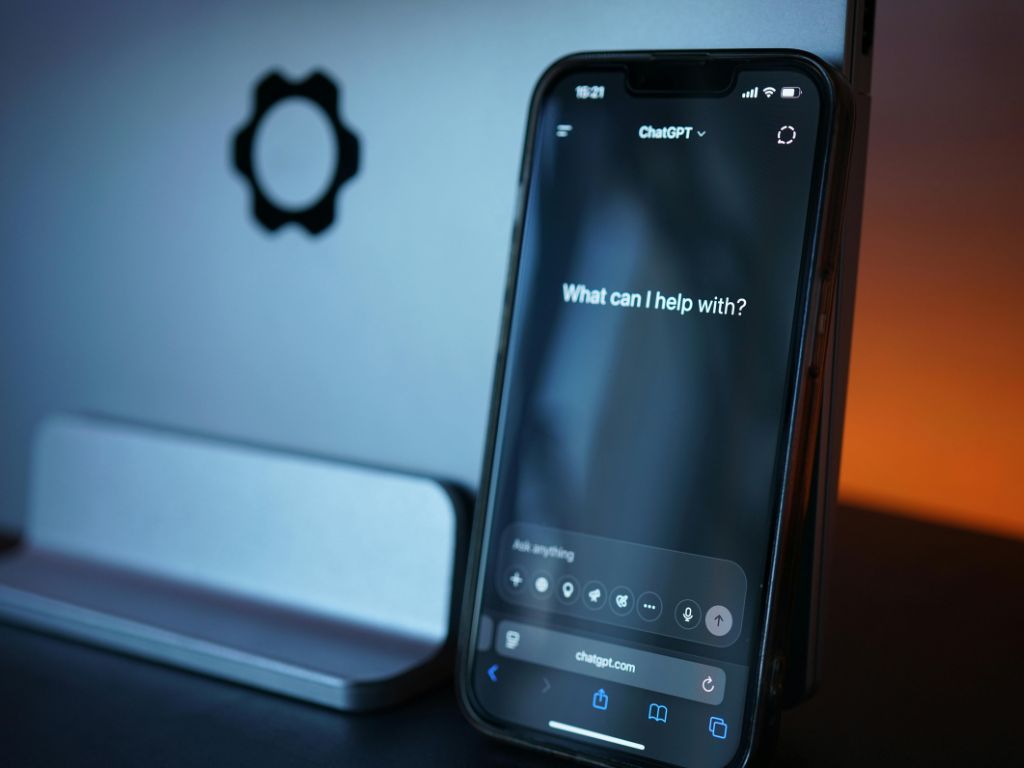
Beyond the Examples: Implementing Custom GPTs in Your Business
The examples above merely scratch the surface of what’s possible with Custom GPTs. Their true transformative power lies not just in their individual capabilities, but in their ability to be meticulously crafted to solve your business’s unique challenges and integrate seamlessly into your existing workflows.
So, how do you move from inspiration to implementation? Here’s a practical roadmap for integrating Custom GPTs into your operations:
1. Identify Your “Pain Points” and Opportunities
Don’t build a Custom GPT just because you can. Start by pinpointing specific bottlenecks, inefficiencies, or areas where human capital is consistently tied up in repetitive, low-value tasks.
- Ask: Where are your teams spending too much time on manual data entry, routine customer queries, or sifting through information?
- Consider: Are there knowledge gaps that lead to inconsistent information or slow onboarding? Can you accelerate a critical business process?
- Prioritize: Focus on areas where automation can deliver clear, measurable ROI – whether it’s cost savings, increased revenue, or improved employee/customer satisfaction.
2. Curate Your Proprietary Knowledge Base
The effectiveness of your Custom GPT hinges on the quality and relevance of the data you feed it. This is its brain, its institutional memory.
- Gather: Collect all relevant documents, internal wikis, FAQs, product manuals, historical data, brand guidelines, and process documents.
- Structure (where possible): While GPTs handle natural language well, a well-organized knowledge base can enhance accuracy and retrieval.
- Ensure Accuracy: Garbage in, garbage out. Verify the information you’re providing is current and correct.
3. Define Clear Instructions and Parameters
This is where you sculpt the AI’s personality, behavior, and limitations. Think of it as writing its job description and code of conduct.
- Specify Tone & Style: Should it be formal, friendly, technical, empathetic?
- Outline Decision-Making Logic: How should it prioritize information? What steps should it follow in a given scenario?
- Set Boundaries: What information should it never share? When should it escalate to a human? What tasks are outside its scope?
- Provide Examples: Show it what good looks like by giving it examples of desired outputs or interactions.
4. Explore Custom Actions and Integrations
To move beyond just providing information, Custom GPTs can be connected to external tools and APIs. This is where they become truly actionable.
- Connect to Your Ecosystem: Can it update your CRM, send an email, pull real-time data from a database, or trigger a workflow in another application?
- Identify APIs: Work with your IT or development team to identify existing APIs or create new ones that allow the GPT to interact with your business systems.
- Think Automation Chains: How can the GPT initiate or complete a series of tasks that currently require manual intervention?
5. Pilot, Iterate, and Scale
Implementing AI is an iterative process. Start small, learn, and expand.
- Choose a Pilot Project: Select a low-risk, high-impact use case for your first Custom GPT.
- Gather Feedback: Deploy it to a small group of users and actively solicit their input. What works? What doesn’t?
- Refine & Retrain: Use the feedback to adjust instructions, add more knowledge, or refine custom actions. AI improves with usage and refinement.
- Measure & Expand: Once the pilot is successful, quantify its impact and then strategically scale its deployment across other teams or departments.
Key Considerations for Success:
- Data Security & Privacy: This is paramount. Ensure that any proprietary or sensitive data uploaded to your Custom GPT is handled in compliance with all relevant regulations (e.g., GDPR, HIPAA) and your company’s security protocols. OpenAI offers enterprise-grade security features for Custom GPTs.
- Human-in-the-Loop: Custom GPTs are powerful tools for augmentation, not outright replacement. They excel at repetitive tasks, freeing up your human teams for higher-value, more creative, and empathetic work. Maintain human oversight for complex decisions, quality control, and continuous improvement.
- Continuous Improvement: Your business is dynamic, and so should your Custom GPTs be. Regularly review their performance, update their knowledge bases with new information, and refine their instructions to ensure they remain accurate, relevant, and aligned with evolving business needs.
- Measuring ROI: Clearly define what success looks like. Is it reduced customer support tickets, faster content production, decreased onboarding time, or improved decision-making? Track these metrics to demonstrate the tangible value of your AI investment.
By strategically implementing Custom GPTs, businesses can unlock unprecedented levels of efficiency, foster innovation, and empower their teams to focus on what truly matters. The future of work is a powerful collaboration between human ingenuity and specialized AI, and Custom GPTs are leading the charge.
🛠️ Step-by-Step Checklist: Creating Your Custom GPT
| Step | Action | Checklist |
|---|---|---|
| 1 | Open ChatGPT and go to Explore GPTs → Create | |
| 2 | Define your GPT’s purpose (support, sales, training, etc.) | |
| 3 | Write clear instructions & guardrails (what it should/shouldn’t do) | |
| 4 | Upload or connect knowledge files / data sources | |
| 5 | Customize tone, style, and conversation flow | |
| 6 | Test the GPT with real prompts and refine as needed | |
| 7 | Share it privately with your team or publish for wider use | |
| 8 | Monitor feedback & performance, then iterate |
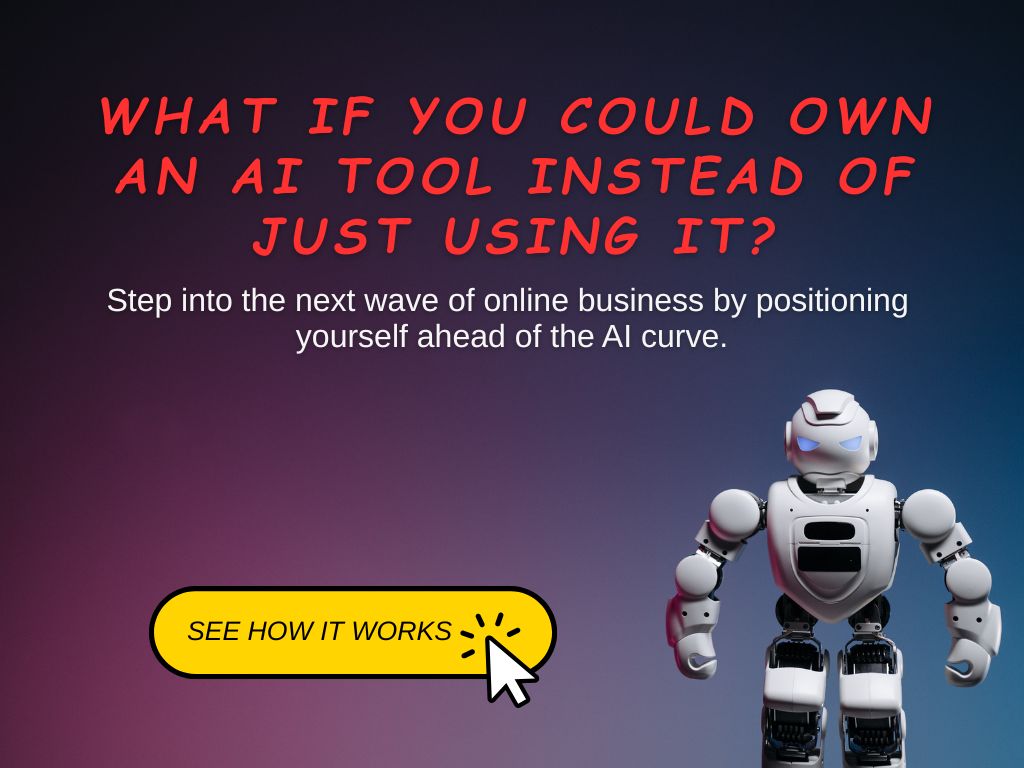
The Strategic Advantage: Why Custom GPTs are Essential for Future Business
In an increasingly competitive and rapidly evolving business landscape, merely keeping pace is no longer enough. To thrive and lead, organizations must proactively seek out and integrate technologies that offer a definitive strategic advantage. This is precisely where Custom GPTs transcend being just a tool for efficiency; they become an indispensable cornerstone of future-proof business strategy.
Unlocking Unprecedented Agility and Responsiveness
The market moves at lightning speed. New trends emerge, consumer behaviors shift, and competitors innovate relentlessly. Custom GPTs equip your business with the agility to not just react, but to anticipate and lead. Imagine a real-time market intelligence assistant (like our Competitor Analysis GPT) that spots a nascent trend or a competitor’s strategic pivot before it’s widely known. This immediate insight empowers you to adapt marketing campaigns, refine product roadmaps, or even explore new business models with unprecedented speed, turning potential threats into opportunities.
Transforming Proprietary Data into Strategic Gold
Every business sits on a goldmine of proprietary data – customer interactions, internal reports, research findings, operational logs. Most of this data remains underutilized. Custom GPTs act as intelligent alchemists, transforming this raw data into actionable intelligence. By training them on your unique datasets, you unlock insights that general AI models simply cannot provide. This deep, contextual understanding allows for hyper-personalized customer experiences, optimized internal processes, and data-driven strategic decisions that are truly tailored to your unique market position.
Building Scalable, Institutional Intelligence
The knowledge within your organization, held by experienced employees, is invaluable but often siloed and difficult to scale. Custom GPTs democratize this expertise. Whether it’s a personalized learning guide for new hires or an expert system for product development, these AIs encapsulate your institutional knowledge, making it accessible 24/7. This not only ensures consistency and reduces reliance on individual experts but also allows your most valuable human capital to shift from knowledge dissemination to knowledge creation and strategic problem-solving. It’s about scaling expertise, not just headcount.
Future-Proofing Your Workforce and Operations
The future of work is undeniably interwoven with AI. Businesses that embrace and integrate AI effectively will attract top talent, foster innovation, and maintain a competitive edge. Custom GPTs offer a practical, accessible pathway to building AI competency within your organization without requiring an army of AI engineers. By automating mundane, repetitive tasks, you free your human teams to focus on high-value activities that demand creativity, critical thinking, empathy, and complex problem-solving. This strategic reallocation of human capital is key to fostering a more engaged, innovative, and ultimately, more productive workforce.
Cultivating a Culture of Continuous Innovation
When routine tasks are handled by AI, your teams gain the bandwidth to think strategically, experiment, and innovate. The Idea Generation and Feasibility Analyst GPT, for instance, doesn’t just suggest ideas; it accelerates the entire innovation pipeline, allowing for rapid prototyping and validation of concepts. This constant feedback loop and reduced friction in the ideation process foster a dynamic, forward-looking culture where innovation isn’t a separate initiative but an inherent part of daily operations.
In essence, Custom GPTs are more than just efficiency tools; they are strategic enablers that allow businesses to harness their unique data, empower their people, accelerate their decision-making, and proactively shape their future in a rapidly evolving world. They are not merely an option, but an imperative for sustainable growth and competitive dominance.

Embracing the GPT Revolution for Sustainable Growth
The business landscape of today is defined by relentless change and escalating competition. In this environment, merely adapting is no longer sufficient; true success hinges on the ability to not just survive, but to thrive sustainably. This is where the Custom GPT revolution truly comes into its own, offering more than just incremental efficiency gains – it provides the strategic bedrock for enduring growth.
Embracing Custom GPTs is a commitment to building a more intelligent, agile, and resilient organization. It’s about fundamentally transforming how your business operates, making every process smarter and every decision more data-informed.
From Reactive to Proactive Growth: Traditional business models often react to market shifts. With Custom GPTs, your organization becomes inherently proactive. Imagine an AI constantly scanning market trends, competitor moves, and internal data to identify opportunities or threats before they fully materialize. This foresight allows you to innovate faster, optimize resource allocation, and pivot strategically, ensuring your growth isn’t just fleeting, but built on a foundation of informed anticipation.
Scalable Intelligence for Compounding Advantage: The true power of Custom GPTs lies in their ability to democratize and scale your most valuable asset: knowledge. By embedding proprietary data, processes, and expertise directly into these AI assistants, you create an ever-growing, accessible repository of institutional intelligence. This means every new hire benefits from a personalized learning guide, every customer interaction is handled with consistent expertise, and every product idea is vetted against a comprehensive knowledge base. This scalable intelligence leads to compounding advantages – faster onboarding, higher customer satisfaction, and a continuous stream of vetted innovations – all contributing to sustainable expansion.
Unlocking Human Potential for Strategic Endeavors: Perhaps the most profound impact of Custom GPTs on sustainable growth is their capacity to liberate human capital. By automating the mundane, the repetitive, and the information-gathering tasks, you empower your teams to focus on high-value, strategic work. This shift allows for deeper customer relationships, more creative problem-solving, breakthrough innovation, and the development of long-term growth strategies. It fosters a workforce that is not just productive, but engaged, innovative, and deeply invested in the company’s future.
Building a Future-Proof Business: The integration of specialized AI is not a fleeting trend; it is the future of business operations. By strategically deploying Custom GPTs, you are not just adopting a new tool; you are embedding a culture of continuous learning, adaptation, and data-driven decision-making into your organizational DNA. This makes your business inherently more resilient to market disruptions, more attractive to top talent, and better positioned to capitalize on emerging opportunities.
The Custom GPT revolution isn’t just about doing things faster; it’s about doing the right things, more intelligently, and with a vision for sustained success. It’s an invitation to elevate your business, transforming challenges into accelerators for growth and ensuring your organization remains at the forefront of innovation for years to come.

Conclusion: Custom GPT Examples.
The five examples we’ve explored from an Instant FAQ & Troubleshooting Assistant revolutionizing customer support to an Idea Generation & Feasibility Analyst supercharging your innovation pipeline offer just a glimpse into the transformative power of Custom GPTs. What ties them all together isn’t just their individual capabilities, but their fundamental nature: AI meticulously designed for your specific business.
These are not generic chatbots or off-the-shelf tools. They are intelligent extensions of your team, imbued with your unique knowledge, processes, and strategic objectives. Imagine:
- Customer support that resolves issues 24/7 with unparalleled accuracy, freeing up your human agents for complex, empathetic interactions.
- Marketing content generated at lightning speed, perfectly on-brand and SEO-optimized, ensuring consistent messaging and explosive velocity.
- Employee onboarding and training that’s personalized, interactive, and always available, accelerating time to productivity and fostering a culture of continuous learning.
- Strategic insights delivered proactively, giving you a real-time pulse on competitor moves and emerging market trends, enabling agile decision-making.
- Innovation no longer limited by human bandwidth, with new ideas rapidly generated, vetted for feasibility, and refined based on proprietary data.
In essence, Custom GPTs empower businesses to unlock unprecedented levels of efficiency, specialization, and innovation. They turn your proprietary data into actionable intelligence, democratize institutional knowledge, and, most critically, liberate your human talent from the mundane, allowing them to focus on high-value, creative, and strategic endeavors.
This isn’t merely about adopting a new technology; it’s about fundamentally rethinking how work gets done. By embedding specialized AI into the very fabric of your operations, you’re not just keeping pace with the future – you’re actively shaping it, building a more agile, resilient, and sustainably competitive organization. The Custom GPT revolution is here, and the businesses that embrace its tailored potential are the ones poised to lead.
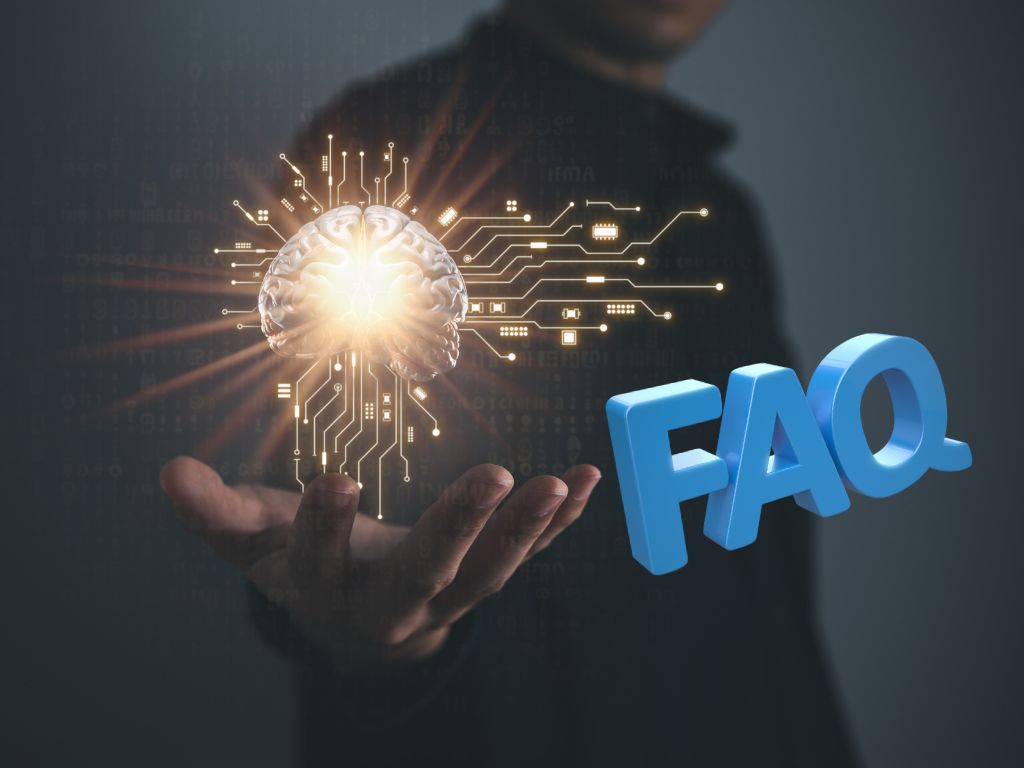
FAQs: Custom GPT Examples
Q1: How do Custom GPTs differ from the general ChatGPT I already use?
Think of it this way: the public ChatGPT is a brilliant, general-purpose encyclopedia and conversationalist. It has vast knowledge but no specific expertise in your business. A Custom GPT, however, is your specialized, highly trained expert. It’s imbued with your proprietary data (product manuals, internal policies, customer history, brand voice), follows your specific instructions, and can even perform custom actions within your systems (like updating a CRM or sending an email). It’s designed to understand your unique jargon, processes, and goals, delivering hyper-relevant and actionable outputs.
Q2: Do I need coding or AI expertise to build a Custom GPT?
One of the most revolutionary aspects of Custom GPTs is their accessibility. You do not need to be an AI engineer or a coder to create one. OpenAI’s intuitive interface allows you to build and configure Custom GPTs using natural language instructions. You simply tell the AI what you want it to do, what tone to use, and what knowledge to leverage. While connecting to external systems via “Custom Actions” might require some technical understanding of APIs (often involving your IT team), the core creation process is remarkably user-friendly, democratizing AI development for businesses of all sizes.
Q3: Is my proprietary business data safe and private when used with Custom GPTs?
Data security and privacy are paramount. OpenAI has implemented robust security measures for Custom GPTs, especially for enterprise users. Importantly, the data you upload to train your Custom GPTs is not used to train OpenAI’s foundational models (like GPT-4) or shared with other users. You maintain ownership and control over your data. Always review OpenAI’s latest data privacy and security policies to ensure they align with your company’s compliance requirements (e.g., GDPR, HIPAA).
Q4: How long does it typically take to deploy a Custom GPT, and what’s the effort involved?
The deployment time can vary significantly based on complexity. A basic Custom GPT for internal FAQs, trained on a few documents, could be up and running in a few hours to a couple of days. More sophisticated Custom GPTs that integrate with multiple external systems or require extensive data curation might take several weeks. The primary effort typically lies in:
- Data Curation: Gathering, organizing, and ensuring the accuracy of your proprietary knowledge base.
- Instruction Refinement: Clearly defining the GPT’s purpose, behavior, and limitations through iterative testing.
- Integration Setup: Configuring custom actions and API connections if the GPT needs to interact with other software.
Starting with a clear use case and a phased approach can accelerate the process.
Q5: Can Custom GPTs truly integrate with my existing business software and workflows?
Absolutely, and this is where their “game-changing” potential truly shines. Through “Custom Actions” (which leverage APIs), Custom GPTs can connect to virtually any external tool or database that has an API. This means they can:
- Update records in your CRM (e.g., Salesforce, HubSpot).
- Send emails via your email service (e.g., Outlook, Gmail).
- Fetch real-time data from your internal databases or external services.
- Initiate workflows in project management tools (e.g., Asana, Jira).
- Interact with your ERP systems, HR platforms, or marketing automation tools.
This ability to read, write, and act within your existing digital ecosystem transforms them from mere information providers into active, hyper-efficient team members that can automate entire chains of tasks.
Leave a Reply